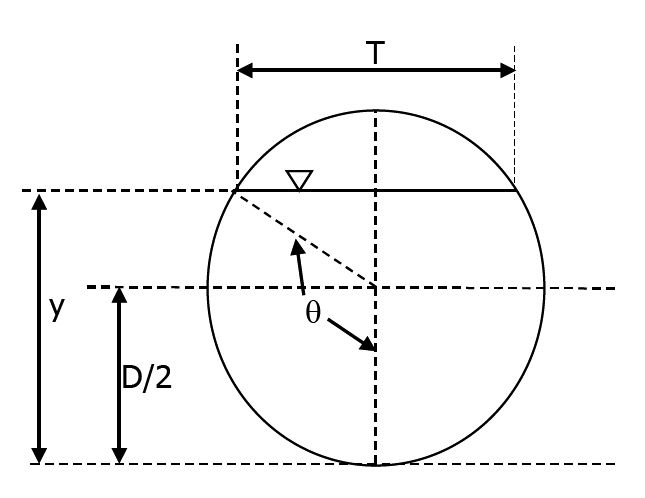HY8:Tumbling Flow in Circular Culverts: Difference between revisions
From XMS Wiki
Jump to navigationJump to search
No edit summary |
No edit summary |
||
| Line 13: | Line 13: | ||
* D -- Diameter of original culvert | * D -- Diameter of original culvert | ||
* V<sub>n</sub> -- Tailwater velocity | * V<sub>n</sub> -- Tailwater velocity | ||
* | * y<sub>n</sub> -- Tailwater depth | ||
* L -- Length from beginning of one roughness element to the beginning of the next roughness element. | * L -- Length from beginning of one roughness element to the beginning of the next roughness element. | ||
* h -- Height of roughness element | * h -- Height of roughness element | ||
Revision as of 20:32, 16 December 2011
The only input variable required for this calculation is the following:
- Diameter of enlarged culvert
The following figures show implementations of tumbling flow within circular culverts along with the variables used to design the energy dissipator.
Variables from the figure
- D -- Diameter of original culvert
- Vn -- Tailwater velocity
- yn -- Tailwater depth
- L -- Length from beginning of one roughness element to the beginning of the next roughness element.
- h -- Height of roughness element
- h1 -- length from top of roughness element to enlarged culvert ceiling
- h2 -- height of splash shield on enlarged culvert ceiling.
- h3 -- rise of enlarged culvert.
Variables from the figure
- D -- Diameter of original culvert
- D1 -- Diameter of enlarged culvert
- Di -- Diameter of roughened section
- h -- Height of roughness element
- L -- Length from beginning of one roughness element to the beginning of the next roughness element.
Variables from the figure
- D -- Diameter of original culvert
- T -- Water surface width at critical flow condition
- y -- Depth of flow


